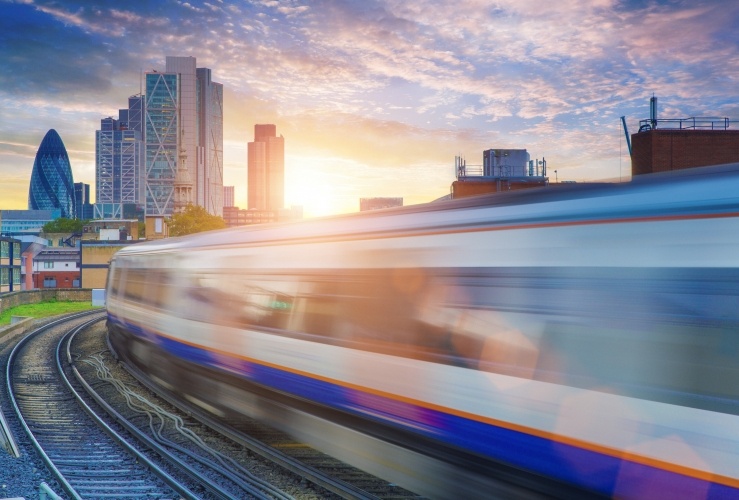
Will HS2 transform the Midlands and North into tiger economies, or is it an expensive white elephant for a nation whose bills are piling up? For homeowners living near HS2 stations, the future could be rosy – at least in the long term.
Like many of the decisions facing the UK in recent years (don’t mention the B word), the HS2 high speed rail link tends to divide the populous.
Naturally, those forced to move home in order to make way for the new lines usually occupy the 'HS2 bad' camp. The upheaval and stress of such a prospect is undeniable.
Then there’s the cost: in 2010 the bill was estimated at £32.7 billion, but has since risen to £56 billion. That figure should perhaps be tempered by the fact it will be spread over 23 years.
It's easy to get blasé about these kind of numbers, but £56bn is a lot of cash.
Perhaps the average UK taxpayer would be less concerned if there were huge and obvious benefits to be had.
There will certainly be more seats up for grabs on trains arriving and leaving Euston, HS2's London terminus. Capacity will rise from 11,300 to 34,900 per hour – each way. Apart from anything else, that could mean a lot of cheap advance purchase rail tickets.

Those living in Birmingham, Manchester and Leeds will be able to reach the capital 20 minutes quicker than before – and vice versa. For some, the £56bn price tag is rather hefty for reaching the office or a business meeting a shade sooner (especially in a world where so much work can be done over the Internet anyway). But the trains will be able to hit an undeniably impressive 250 miles per hour, placing HS2 locomotives just behind the 267mph Shanghai Maglev – the world's fastest train.
The line will form a Y shape, with London at the foot, Birmingham in the centre, and Manchester and Leeds at the north western and north eastern points. High speed trains will be able to travel beyond these stations on slower lines, connecting other big cities, such as Glasgow.

Unfortunately, such a huge piece of infrastructure takes a very long time to build. This means a great deal of disruption to those who live near the new lines, but who are not close enough to receive compensation and move home.
But housing markets near the stations could receive a big boost. A recent survey by Development Finance Today revealed that 67 per cent of readers felt HS2 would boost the housing market, while 32 per cent were of the opposite opinion.
Michael Dean, principal at Avamore Capital, was quoted in Development Finance Today as saying: “A lot of property speculation in Birmingham has been made on the back of HS2, despite no works having commenced.
“It’s hard to see much continued price growth in those markets as so much growth is already priced in.”
Rico Wojtulewicz, policy advisor for the House Builders Association (HBA) believes there will be longer term benefits to the housing market: “HS2 will unlock new city development and advance regional connectivity by freeing up existing commuter rail networks.
“Planners must do all they can to strategically enable this development, as housebuilders and homeowners are already getting excited about the opportunities HS2 will bring.”
Others in the industry believe there could be short term damage to the housing market – primarily caused by the noise and disruption of the construction phase – but that long-term gains could be enjoyed by many homeowners.
Rishi Passi, CEO of Oblix Capital, said: “[In the] short-term, HS2 has been very detrimental to those who are unfortunate enough to be living on and close to the proposed routes.
“Many properties are now unsellable and, although the government are offering compensation and buyout schemes, not all will qualify and will face years of living near the construction and possibly experience a drop in home values.
“[In the] long-term, HS2 could bring an abundance of good benefits to the housing market.”
Property values have risen in areas near Crossrail terminals, as they have in other areas where transport has been upgraded – including in Cambridgeshire, Suffolk and Norfolk.
Then there's the construction itself: thousands of jobs will be created, which will have a positive 'trickle down' impact on local economies.
HS2 remains a complex and divisive project, with the precise benefits may not, as yet, be completely clear. But one thing is certain: a HS2 train will be arriving at a station (relatively) near you soon (or at least, in about 23 years).





